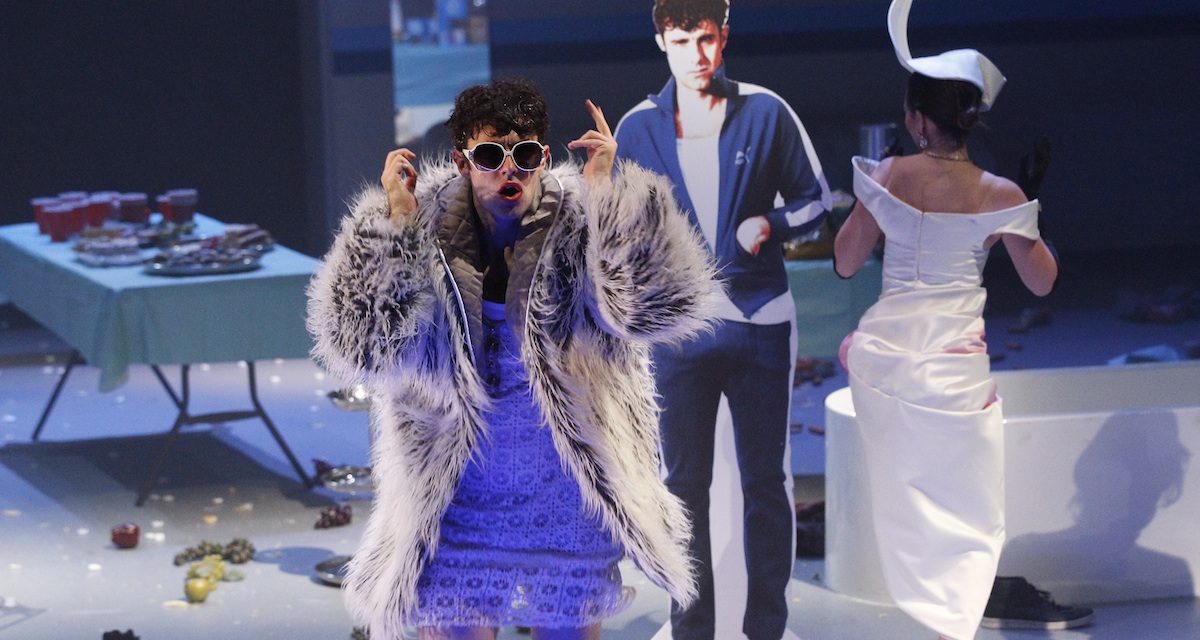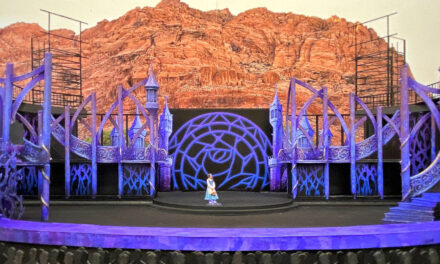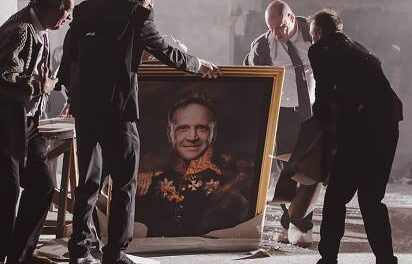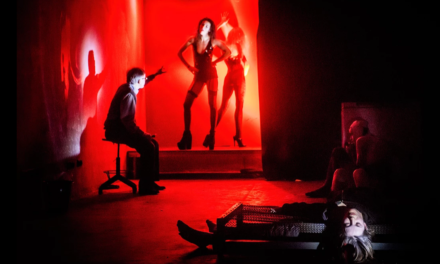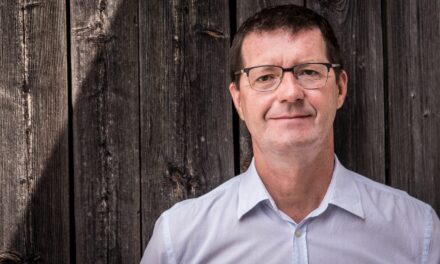As part of the research to write my book The Global Playwriting Workbook (Methuen Drama), I have been interviewing teaching playwrights from all over the world about their teaching methods. In this interview, the British playwright Simons Stephens, who has a broad experience of holding workshops worldwide, gives us exciting insights on this topic. Having taught on the Young Writers’ Programme at the Royal Court Theatre for many years, he is now an Artistic Associate at the Lyric Hammersmith.
Ana: Could you tell us about your path as a playwriting teacher?
Simon: I trained as a school teacher before I became a playwright. I am a professionally qualified school teacher, trained at the Institutes of Education in London. I worked as a schoolteacher in schools in London for two years, before I was a resident dramatist at the Royal Court. When I finished my residency, I began to work at the Royal Court Young Writers Program, and I ran the course there for five years. During that time, I worked with about 800 playwrights, in various capacities, from running workshops to reading plays and giving individual tutorials, running workshops in schools, in prisons, and in offices as well. At the same time, I started working for Arvon Foundation, giving workshops for amateur writers. I left the Young Writers Program at the Royal Court in 2006 and was resident dramatist at the National Theater for a year. In 2008, I became the artistic associate at Lyric Hammersmith, and I ran some groups there as well. It was also around that time, in 2008, that I started my annual teaching at the Obrador, at the Sala Beckett, in Barcelona, and I have continued to teach there in the last 9 years now. I taught workshop throughout Europe, in Australia, in New Zealand and around various cities in the USA. I taught residential courses in Mexico City, and Montevideo, and Uruguay as well. I should also say that for the past 10 years I have taught a playwriting course for 10-year-old playwrights too. It’s really good fun.
Ana: This point is particularly important for me, that you have such varied experiences. What do you think changes when you teach a workshop, for example, in Uruguay for semi-professional writers, who are not native speakers of English than very young playwrights from your own country?
Simon: It’s difficult to talk in general terms about what differentiate writers in different cultural contexts without being quite crude. There is an inclination in British theater to talk about European theater as though it was possible to homogenize the instincts of a writer from Helsinki and those of a writer from Berlin or Barcelona. You know, different playwrights have different assumptions because they are products of their different industries. It’s important not to homogenize when you are dealing with different writers from different backgrounds. There’s no such thing as a “European playwright” or a “Latin American” playwright, because every playwright is an individual, product of their individual circumstances, and will have different interests and different histories. It might be the case that German playwrights are less likely to be interested in classical, Aristotelian notions of dramatic action, perhaps as a consequence of their theater system that tends to privilege the director over the writer, which leads to the writer writing texts that are more open, texts that invite a freer directorial interpretation. But you might also get someone like Mario Salazar, from Berlin, who is writing very character-driven, more narrative-based plays, and who’s not an example of a post-dramatic writer. I think playwrights tend to be the result of the industries that create them, as much as any cultural phenomena, so it’s tricky to homogenize. That said, I think I can affirm that professional playwrights tend to know more how a stage works than 10-year-old playwrights. 10-year-old playwrights are less worried about what you can and can’t put on stage. That’s not necessarily good or bad. 10-year-olds might put 500 characters coming on stage and they start talking Italian, asking for ice-creams. On one hand, this is totally brilliant, it’s really bold. On the other hand, professional playwrights usually have their imaginations focused by demands of professional theater. This might be a limitation as well as an advantage. I’m not saying one is better than the other. I think they make your experience as a coach richer.
Ana: More practically, talking about methodologies, how different is it to run a workshop with 10-year-olds and with international emerging playwrights? Do you have specific writing exercises for each case? How do you structure your workshops in such different contexts?
Simon: I use similar exercises, actually. I tend to work with 10-year-olds at school, so time is limited. We tend to have 45 minutes to one-hour long sessions, against 3-hour sessions for professional writers. We differentiate by results, rather than by exercise. So, if I’m using the same exercise with a playwright in Berlin or London, I might expect a higher level of result than if I’m doing it with a 10-year-old. But they are fundamentally the same types of exercise, about character and narrative, because those are the areas that fascinate me. I think, as a teacher, what is important to me is that my teaching relates to my writing. I think this is both an advantage and a disadvantage of me as a teacher. As a writer, I am fascinated by characters and stories, and I think that each play is kind of an interrogation. This comes from the fact that I am a Royal Court playwright, quite specifically. So when I work with 10-year-olds, I am working as a Royal Court playwright. But I do similar writing exercises with both of them.
Ana: How would you define a Royal Court playwright?
Simon: First of all, the Royal Court commissions and produces plays. They rarely produce work that is a product of devising. It tends to be the case that the playwright is the focus of the program, not the director. If you look at the posters, the playwright’s name is always at the forefront, not the actors’ or the director’s. The tradition is they produce plays which are challenging either in form or content. Of course, I guess this is a notion subject to interrogation. What is challenging to the audience? What is a challenging form? What is challenging content? Sarah Kane was innovative at the time she was launched. Within ten years, some of her innovations have become conventions. So the challenging can become conventional. That’s something that the Royal Court Theater is alert to and that I am alert to in my own writing and in my teaching.
Ana: How do you stimulate this research towards the new in your playwriting students? How to keep challenging form, content, and the audience? I know firsthand your practice as a teacher because I was one of your students at the Obrador, as well as at the Royal Court, but I would like to hear from you.
Simon: That is a really interesting question. You know, on one hand, it is part of a pedagogy that is fundamentally democratic. I like to encourage all the participants to share their thoughts on theatre. It might be that they have no interest in challenging work at all. And that’s fine, that’s great. I guess the most important thing is to hold an intelligent conversation and consultation of what the writer is interested in. You know, you just ask them what they are trying to write about, and you help them to best reflect or articulate the questions that they are fascinated by with as much clarity as possible. This is the same with a child and a professional playwright in Montevideo – the same kind of questions. It is based on listening. You listen to them. In the end, you listen to the students and make sure that they are asking questions that are engaging for themselves, and not just writing for the sake of writing.
Ana: So you make sure you are not influencing in terms of aesthetic choice? If one writer is trying to write post-dramatic theater, where the plot is absent, and another one in the same group is trying to write a very traditional well-made play, that might be challenging to deal in a workshop. How do you manage this diversity?
Simon: My take tends to be very eclectic. I think this is very important. You know, as a playwright I am very interested in post-dramatic theater, as well as in farce and traditional comedy. I am interested in naturalism, as well as in that kind of heightened poetic writing that comes out of Lyon or Paris. For me, it doesn’t make sense to teach a certain notion of what a play ought to be. I think I feel this way because I’ve read and seen just so many different types of plays. I think what I want to interrogate is why the writer is writing a specific play. The answer should be because that is the play that excites them, that is the play they want to see, that is the form that most articulates their interest. I think that my job as a teacher is to work to see what kind of play the writer is interested in writing and why. If their answer is “I am writing this way because I think that’s what a play ought to be,” then I might come and challenge them, interrogate them further. At the same time, I am me. I can’t be anything other than who I am. Neutrality is an impossible position. Objectivity is an impossible position. The best that I can do is to be aware of my subjectivity and try to leave the writer with the necessary tools to interrogate my assumptions. When that happens, I tend to be happy. I think one of the best things about teaching is exactly this, the interrogation about assumptions. I have learned a lot with my students by interrogating theirs and my own assumptions.
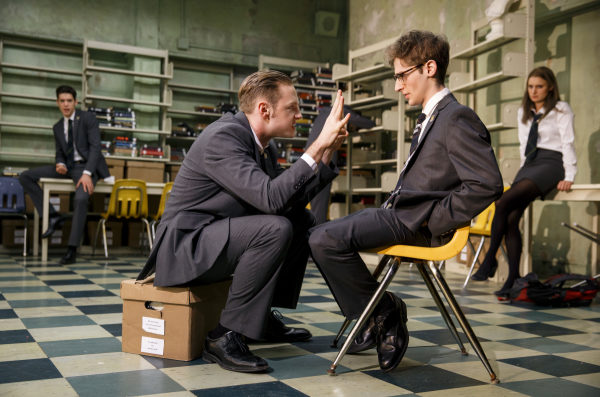
Will Pullen gives Noah Robbins a piece of his mind in Simon Stephens’ Punk Rock, a production of MCC Theater directed by Trip Cullman at the Lucille Lortel Theatre, 2014. Photo © Joan Marcus
This post was written by the author in their personal capacity.The opinions expressed in this article are the author’s own and do not reflect the view of The Theatre Times, their staff or collaborators.
This post was written by Ana Candida Carneiro.
The views expressed here belong to the author and do not necessarily reflect our views and opinions.

